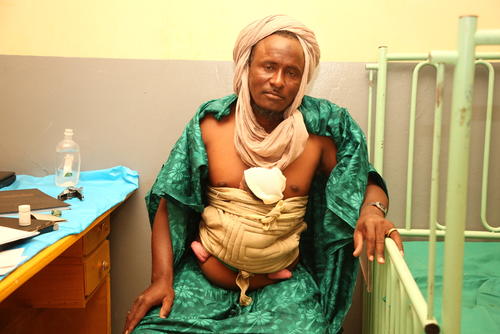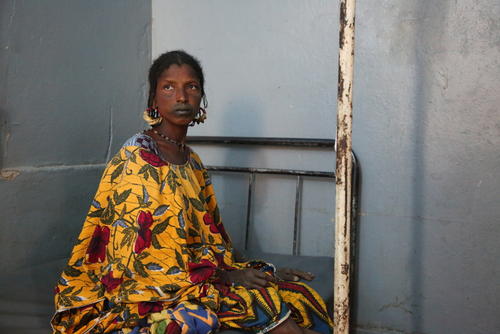
178,200
178,2
MSF runs programmes in several parts of the country to increase access to healthcare for the most vulnerable.
Ansongo
MSF has been supporting the reference hospital in Ansongo town, in Gao region in eastern Mali, since 2012. Teams support outpatient consultations, emergency care and admissions, surgery, maternal healthcare, chronic disease treatment, nutritional care, neonatology, paediatrics and treatment and psychological support for victims of violence, including victims of sexual violence. MSF also provides basic care for pregnant women and children under five years of age at the community health centre in the town.
In Ansongo district, MSF refers patients to community health centres and transfers severe cases to Gao hospital. Between July and December, when nomadic groups migrate, teams ensure they have access to healthcare by training community health workers to diagnose and treat the most common diseases. A monitoring and referral system for serious cases is also in place.

Kidal
In Kidal, north of Gao, MSF supports six health centres in and around the city in partnership with local authorities. Teams provide primary healthcare to the entire population as well as epidemiological surveillance, and refer complicated cases to the referral health centre (CSRef) and Gao hospital.
In Douentza, MSF supports the CSRef in the management of malnutrition, emergency surgery, hospital admissions for children under 15 years of age and mental health services. It also provides referrals to the CSRef, and transfers urgent cases to Mopti city.
In Koutiala, in the south of the country, MSF focuses on children under the age of five. The team supports nutrition services at the CSRef, as well as in 15 community health centres. In addition, MSF deploys extra community workers in the health district during the peak malaria season. MSF is currently constructing a 185-bed paediatric care unit at Koutiala CSref.
In Ténenkou, MSF’s priority is care for women of childbearing age. Staff support the maternity ward, operating theatre and the outpatient department at the CSRef. MSF also deploys ‘malaria agents’ to hard-to-reach communities during the peak months (August to November) and mobile clinics offering basic healthcare.
Emergency response team in the Sahel
An emergency mobile team, composed of medical, paramedical and logistical experts, has been in place since 2015 in the Sahel. Its purpose is to monitor the epidemiological situation and to respond, within 24 to 48 hours, to medical and humanitarian emergencies in the region, mainly in Niger but also in Mali.


















